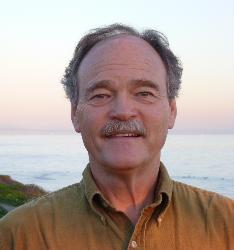IMS Affiliated Faculty

- Pronouns he, him, his, his, himself
- Title
- Professor
- Division Physical & Biological Sciences Division
- Department
- Ecology & Evolutionary Biology Department
- Coastal Science & Policy Program
- Institute of Marine Sciences
- Phone 831-246-3524, 831-459-5783
- Fax 831-459-3383
- Website
- Office Location
- Long Marine Lab Ocean Health Building, 254 A
- Office Hours By appointment
- Mail Stop Long Marine Lab
- Mailing Address
- 115 McAllister Way
- Santa Cruz CA 95060
- Faculty Areas of Expertise Ecology, Coastal Science, Conservation, Fisheries, Marine Biology, Population Dynamics, Sustainability, Science Communication
- Courses BIOE 108/208: Marine Ecology, BIOE 158/258: Marine Ecology Laboratory, BIOE 161/L: Kelp Forest Ecology, BIOE 183: Undergraduate Research, BIOE 200A: Scientific Skills, CSP 200: Coastal Natural Science
Summary of Expertise
Ecology of coastal marine ecosystems
Research Interests
The purpose of our research program is to better understand the structure and dynamics of populations and communities of nearshore marine organisms and their ecosystems. The underlying themes of this research are two-fold; firstly, to further our conceptual understanding of marine populations and communities by conducting empirical studies motivated by the evolving theory for these systems, and secondly, to apply these concepts to fisheries and conservation problems in innovative ways. Our approach is to integrate empirical studies conducted in the field and laboratory with the development of ecological theory, including models.
Currently, we are exploring the relative roles of, and relationships between, nearshore oceanographic and habitat features, larval supply, settlement and post-settlement processes (e.g., competition and predation) that influence the replenishment and persistence of populations. We are also interested in how structural features of reef habitats influence such biotic interactions. To date, most of this work has targeted populations and assemblages of temperate and tropical reef fishes. More recently, our lab has developed a broader ecosystem-wide interest in temperate reef (e.g., kelp forest) ecosystems as reflected in our role in the Partnership for Interdisciplinary Studies of Coastal Oceans (PISCO). We also have a growing interest in coastal salmonid ecology, based largely on our growing research and teaching collaborations with the NOAA Fisheries Santa Cruz Lab located here on the UCSC campus. We are also exploring ways to apply such basic ecological information to the conservation of marine species and management of their fisheries.
Biography, Education and Training
B.A., University of California, Santa Cruz
M.S., San Francisco State University
Ph.D., University of California, Santa Barbara
